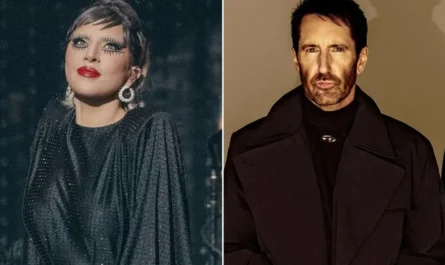Glenn Hughes recently opened up about his time in Deep Purple. He revealed complex feelings about sharing lead vocal duties with David Coverdale in an interview with Louder Sound.
When asked about how drugs entered his life during his Deep Purple years, Hughes provided candid insights into both his substance abuse and his underlying dissatisfaction with his role in the band.
“When anyone has success, there will be people around offering them stuff – jewellery, watches girls, drugs,” Hughes said. “When I joined Purple I was given all kinds of drugs, pills, things like that. I’d flush them down the toilet or just leave them in my pocket and not do anything with them.”
Hughes explained how his cocaine use began gradually after initially resisting temptation.
“After about six months in Purple, I started to go: ‘What is this stuff about, cocaine?’ One night, I found something in my pocket. I was alone in my room, and I sniffed some of it,” he recalled. “I went: ‘Oh, this is fun. This is making me happy.’ Slowly but surely I started becoming addicted. I thought: ‘I’m young, isn’t everybody snorting cocaine off of strippers’ bums?’”
However, Hughes revealed that deeper issues were at play beyond the glamorous rock lifestyle.
“Part of it for me was that maybe I wasn’t that happy. It was glamorous in Deep Purple, everything I ever wanted was there, yes, but I just wasn’t as happy as I should have been,” he admitted. “With respect to David (Coverdale), I was a lead singer when I joined the band, and now I was basically known as the second singer. I loved singing with David, we sang brilliantly together, we had a great friendship and camaraderie, but all along I was thinking: ‘I shouldn’t have joined the band, because I really need to be singing.’”
Hughes’ candid admission sheds light on a pivotal period in Deep Purple’s history that produced some of the band’s most adventurous music while taking a personal toll on the bassist and vocalist.
Metal Radio reported that Hughes joined Deep Purple in late 1973 as part of the Mark III lineup, fresh from leading the band Trapeze. He found it unusual that he was joining as both bassist and singer but not as the sole frontman. Once Coverdale arrived, the two quickly formed a dynamic vocal partnership, sharing lead and backing vocals on songs like “Burn,” “Mistreated,” and “You Keep on Moving.”
Their collaboration defined Deep Purple’s sound during the Burn and Stormbringer albums. It blended Coverdale’s bluesy, soulful delivery with Hughes’ funk, soul, and R&B influences. The partnership continued through Come Taste the Band in 1975, with Hughes co-writing much of the material after Ritchie Blackmore’s departure.
Despite the musical chemistry, the relationship between the Mark III members and the classic Mark II lineup has remained strained. Louder Sound noted that Hughes described Deep Purple’s 2016 Rock and Roll Hall of Fame induction as “difficult because of, let’s call it ‘personality problems.’” He observed that “It was David and I holding hands, and the other guys, unfortunately! We just don’t get along with the other guys, at all.”
After Deep Purple, both vocalists pursued successful careers. Coverdale founded Whitesnake, one of the most successful hard rock bands of the 1980s. Hughes pursued a solo career and joined various supergroups including Black Country Communion, California Breed, and The Dead Daisies. The two have occasionally reunited on stage, such as Hughes joining Coverdale during a Whitesnake concert in 2015. However, Blabbermouth revealed that plans for a full reunion have remained elusive due to busy schedules and Coverdale’s possible retirement from major touring.
“If he said to me tomorrow, ‘Let’s get together and maybe do something,’ I would find the time, but I don’t wait for that opportunity,” Hughes said in 2023. He noted that “the window of opportunity is closing” on a possible new collaboration with his former bandmate.




